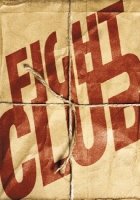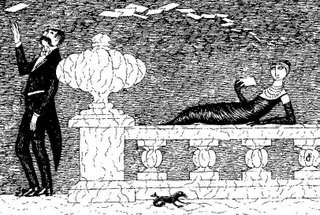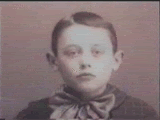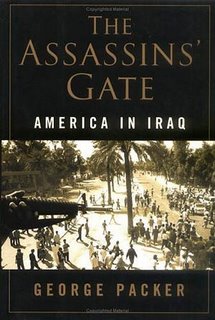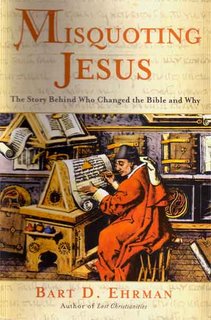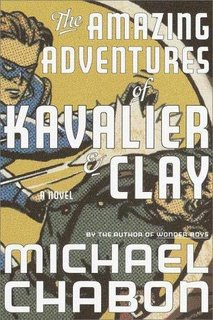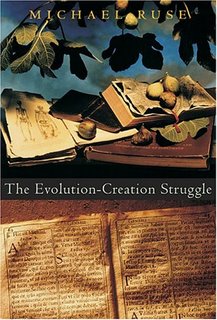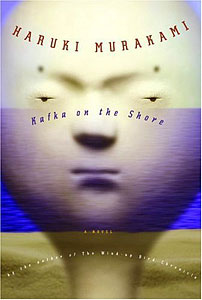We have a problem in America today. That problem is that we can't decide what should be the rational basis for the laws we make. You may be confused now. After all, this is supposed to be related to the church-state issue raised in
Divided By God. Well, it is, so bear with me.
One of the points that Feldman raised in that book is that historically, before we were as multicultural a nation as we are now, laws were passed without real regard for what came to be known as "minority rights". As a matter of fact, the very idea of minorities is a relatively recent invention. Whoever was the majority won defacto because nobody else was considered. For example, the laws regarding funding of Catholic schools.
Now before you say that's an obvious case of a breach of the church-state relationship, keep in mind that until fairly recently, in public schools it was normal for teachers to lead children in prayer. Also, reading from the bible was a daily event. When this kind of discrimination was brought to court, it was basically upheld by saying that the public schools (paid for by taxes levied on both Catholics and Protestants) weren't inculcating a particular religion. They were inculcating basic American values that were supposed to be common among all religions. So, by any definition, the state was funding religious education. This was something that the Founders almost surely would not have supported, that being the entire purpose of the establishment clause ("Congress shall make no law respecting an establishment of religion, or prohibiting the free exercise thereof"). Establishment, in that case, is not synonymous with a building, as it is in modern usage (ex. "I find this to be a fine establishment for dining on a small budget.") It means that the government shall make no law that creates a church. That did, in their day, apply to the taxation of people to support churches and religions they did not believe in, something which was a common practice in the states until after the 14th amendment which gave all citizens the rights and protections of the Constitution.
So obviously, on the one hand you have the government in this case supporting the establishment of religion in "public" schools but denying that same support to Catholic schools (which of course were open to anyone who wished to pay). But at the time, that was believed, by the majority of people, to make perfect sense. Nonsectarian Protestantism was the "American way". Of course in later years other people began to take public schools to court for religious teachings (we actually have the Jehovah's Witnesses to thank for much of that). In the progressive 60's and 70's, it was finally seen as a violation of other people's rights to have to support (pay taxes for) a religion they didn't believe in.
But that doesn't change the essential balance of the laws we've written. Some are based more on the shared values of our nation, some on protecting the rights of the individual. To many, this is synonymous with the assault on the doctrine of the separation of church and state that religionists of many stripes have been waging ever since the liberal high-tide passed.
Here's a thought: unless you can win and assure that your laws will always remain
the laws, by opening the door to such tyranny of the majority, you are setting yourself up to be the oppressed minority. This is because it's not possible for America not to change. It's not possible for white protestants to be the majority forever, nor anybody else for that matter. Someday the influx of immigrants from south of us will stop. Heck, 200 years in the future we may be sending people down there; who knows?
Among others, that's a reason I don't believe the idea that we can force people to live a certain way should be adopted into our laws. Now this is not to say that there is no place for values in our laws. Nor is it to say that we should basically live in anarchy and let people run around doing whatever they please. I certainly believe in a large, effective government (and in paying taxes for that government). But I think that it shouldn't reach into our personal lives.
I guess to some people, at issue is a supposed dichotomy between bringing up people to have an essential American national identity and respecting individual rights. But I don't agree that there is a dichotomy. As a matter of fact, I think we'd be teaching our kids to be good Americans simply by teaching them that they have essential, basic rights and by respecting those rights. Of course we should also have a better public education system, because how can they truly love this country if they don't know it? But anyway, I say let the Baptists be Baptists, let the Catholics be Catholics, and don't let either of them write laws based on their understandings of religion. And this has nothing to do with whether I think their interpretations are correct or not. I think the only rational course is to protect the freedom of the individual at the highest level.
It's almost certainly not what the Framers intended in setting out the Constitution. While they believed the government existed to serve the people, they also believed that at times state coercion of the people was necessary. Despite what some morons want you to believe now, most of the Framers certainly did not believe that the individual should not be taxed. If you recall, the refrain was "No taxation without representation." Not just "No taxation." And, as I noted above, the Bill of Rights (and Constitution in general) did not apply to individual citizens. They placed limitations of power on the Federal government, not State governments. The State of Virginia certainly could restrict free speech, fund churches, and take away your guns. But that just goes to show that over the years, the American citizen has demanded more and more freedom, as we have seen that the desire for freedom is paramount in all peoples. We have, in general, come to believe that individual freedom is the most basic necessity of the democracy we live in. And, over the years, because of that belief we have seen Congress and the courts expand our freedoms again and again.
This brings me to my point: the one thing we Americans believe in above all else is freedom. Nothing makes us more American than that. The freedom to believe what we want, say what we want, read what we want, shoot guns if we want and everything that follows. That is our American value. And that is why freedom should be the prime rationale for every law we make and every action the government takes. Everything can be expressed in terms of conflicting freedoms. Take, for example, murder. Surely the freedom of life is your most basic one; so fundamental that it doesn't need to be stated anywhere. Murder is the absolute negation of all your rights. Therefore, no one has the right to murder anyone, as it represents the supreme abrogation of another's rights. Also consider traffic regulation. You can't speed, you can't run red lights, and you can't cross three lanes of traffic because you're endangering others and threatening to injure or kill them. You have no right to do that. It's not about government having rights. The government doesn't have rights to regulate you; regulating citizens is a job the government has as a proxy of everyone. Not everyone can be a policeman or fireman. You can't stand there 24 hours a day 365 days a year enforcing speed limits. That's why there's a government; they do it for us.
As far as separation of church and state, I absolutely have the right not to fund religions. In that rationale, I might say that any individual has the right not to fund anything they don't agree with. But religion, in my view, is not a function of the state, whereas police, firemen, libraries, and soldiers are. This is because regardless of my beliefs, if I'm being robbed a cop will help me out. If my house is on fire, the firemen will come. And whatever my religion, I can get a book at the library. I guess churches can do that sort of thing too, by making religion a non-element in the services they give, but then, why would they?
Christians sometimes make the argument that funding public schools forces their kids to learn teachings that are not in keeping with their religion, and therefore violates their right to worship as they please. They are "violated" by such teachings as evolution, sex education, and the idea that gay people are normal. Well, I can understand that. If your religion actually says that science isn't, well, true, then teaching kids scientific fact can violate your religion. And for that I would almost say that people should be able to take their kids out of public school and have their tax money applied to private schools.
But then again, the greatest common bond most Americans will probably ever share will be their public schools. A lot of times, they're flawed. But contrary to movies (that damn liberal Hollywood), my multicultural public institutions were great places to interact with people of all races, colors, and cultures. And we did. I had white friends, black friends, Hispanic friends and Asian friends. Teaching kids to be part of the democracy is one of the prime functions of public education, and that, in terms of what's valuable to the state, is more important than assuring that kids receive religious education on the state's time. For it is the state's time, that time of childhood to forge Americans, not Catholics or Baptists or Lutherans or Mormons. Let the religions be concerned with that. That's what you have Saturday and Sunday for and weeknight services (what, you didn't know that some churches do?). If the state has the responsibility to teach us anything, it is the value and responsibility of being an American and being part of the democratic process. And despite my wishes to be inclusive, I say to you that if you don't wish to be part of the democratic process, you may go somewhere where you will not be.
Now I've actually been working on this a few days and I wish to wrap it up, so let me start to end, and if it ends too quickly, sorry. And if this has been too long, sorry. But screw you, it's my blog.
What I want to suggest is this: that we regard every individual, and every group of individuals as having a "sphere" of rights. Now these rights don't need to be defined; we shall assume that in every case of doubt, everyone has every right. If I haven't mentioned it before, let me mention it now: Madison, among others, argued against the Bill of Rights being adopted because he didn't want it thought that the only rights that existed were those enumerated in the document. He thought, as all the Framers did, that the rights of people were unlimited. The reason a Bill of Rights was included goes beyond the scope of my writing, but suffice it to say that a number of folks still wanted their rights specifically protected. So let's say you have this sphere of unlimited rights. Well, everyone does. Right away you can see what the problem is. People's sphere's are going to run into each other. At issue is what happens when these spheres interact. Well, both spheres should be preserved to equal measure. In the example I used before, you can't murder someone because that completely negates their freedom. But if the issues is that you want to shoot things, well, you should have the right to shoot things, as long as it doesn't infringe on someone else's personal sphere.
Now I really don't have the time or inclination to elucidate much further, but I'm assuming that you can reasonably see where this is going. The government would only have laws regarding where people's spheres of freedom overlap or intersect, and those laws would exist to maintain an equal balance of freedom between the parties. This would result in much the same country as we have today. Speed limits would still be there, for the aforementioned reasons. Laws against drugs might have to change unless we have some reason to believe that self-annihilation harms others (which it does by the way, if only because public tax money has to be spent on picking you up when you're dead). And of course there's the question of whether you can voluntarily abdicate your rights. And of course, if you could, then what would constitute such abdication? My system, as you see, is not necessarily simpler than our present system. But I do think it's fairer.
For issues that occur between individuals, most of us are already of the opinion that it's none of our business. Except of course, when what they do offends you. We used to have laws banning inter-racial marriage. That was struck down, eventually, but the idea that you can regulate person to person relationships hasn't been. Gay marriage, again. I don't see why the state has any business regulating the personal matters of any two people save to assure that neither of them is infringing on the other's rights. I mean, if I wanted to give someone the legal rights to me that they would have in marriage without marrying them, why shouldn't I have that power? And what difference does it make whether sex is involved or not? How about polygamy? In what way does it involve the state? Why does the state have any compelling interest in multiple marriages? As approached from the viewpoint of individual rights, I think it's absurd.
You know, I'm a married man. One man, one woman. Just like God intended, as some would say. And I'm not interested in quitting, or getting more wives (or an additional husband!). I don't want to use drugs; I barely drink caffeine and never alcohol. But if other people do these things, I don't see it as an infringement of my rights and freedoms. And if it's not infringing my rights and freedoms, why should I have any right to limit them?







